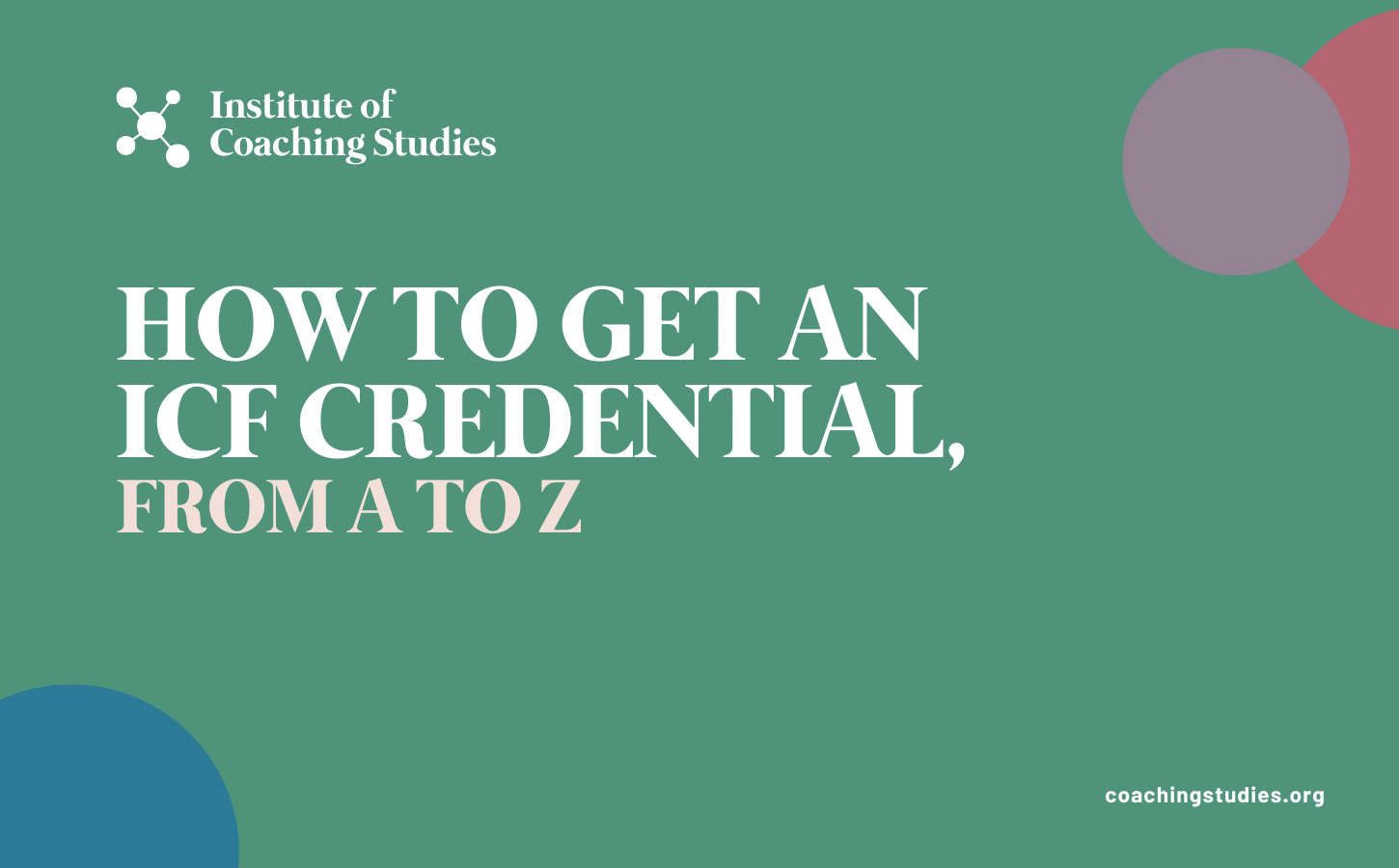Applying for an ICF credential is a choice coaches face at some point in their career. For many, it’s an evidence: the ICF credential is a step they see as necessary to become professional coaches. For others, the costs and considerations outweigh the positives, and therefore they decide not to go for it.
In this article, we are going to talk about what coaches get out of an ICF credential, but also what it may cost them. You’ll be able to see for yourself if you think the ICF credential is worth it for you?
Benefits
RECOGNITION OF YOUR COMPETENCIES
Because the ICF is an international organisation, its framework is globally recognised as a standard of practice. The credential recognises and validates the coaching education and the competency level of a coach. It means that the coach is aware of the skills to demonstrate and has proven their ability to do so in a coaching session.
PROFESSIONAL STANDARDS AND ETHICS
The ICF has developed 8 competencies, and for each of these competencies certain behaviours are expected of the coach depending on their level of credential. The more experienced a coach is, the more transformational their style is supposed to be.
By becoming ICF-credentialed, a coach also has to adhere to the ICF Code of Ethics. This document sets clear guidelines about the ethical behaviours a coach should follow.
CLIENT TRUST
The coaching profession is not regulated and anyone can call themselves a coach, even when they’ve never done any training and have no coaching experience. We sometimes see people called themselves coaches and actually not doing coaching.
In this industry, ICF-credentialed coaches stand out for many reasons:
- They had to complete an extensive training,
- They had to facilitate hundreds of hours of coaching,
- They had to pass a performance valuation and an exam,
- And they have to follow the ICF Code of Ethics is reassuring for clients.
As a client, which would you rather choose: a coach who says they are a coach, or a coach who can demonstrate they level of training, experience, and competence?
NETWORKING & community
Receiving your credential opens the door to a community of like-minded professional coaches who share a similar vision and approach to coaches. It makes it easier to connect with other coaches, to join events, to talk about yourself as a coach, and to build meaningful relationships with your peers.
CONTINUOUS LEARNING
The ICF credential also means for the coach to be committed to learning and to engage in ongoing coaching education. The coach is encouraged to develop their competences beyond their initial coach training if they want to renew their credential.
THINGS TO CONSIDER
FINANCIAL INVESTMENT
There are a few things to consider that might make the decision of apply for an ICF credential less straight forward, the cost being one.
A coach who wants to receive an ICF credential will have to pay between $175 and $625 (depending on the credentialing path) to apply on the ICF website. This is if the coach has already met the training and mentoring criteria for the credential. If not, the coach will have to complete 10 hours of Mentor Coaching. They may also have to retake the Credentialing Exam, or send another recording of a coaching session if they were not successful the first time, which require additional costs.
TIME COMMITMENT
Once again, depending on the credentialing path you take, the credentialing process may be quite short, or very long: it sometimes take the 4 to 5 months to review applications. This is also not considering the additional time it may take you to meet all of their criteria (e.g. the 10 hours of Mentor Coaching over a period of 3 months minimum, etc.).
SPECIFIC CRITERIA TO MEET
As we’ve just seen, the ICF has very specific criteria for credentialing, and will not be flexible if the coach doesn’t meet all of them. A coach who didn’t research these criteria before training and offering sessions may find themselves in a difficult situation where their training and experience may not count.
What we advise people who are considering becoming coaches is to research and get a very good understanding of these criteria, in order to set themselves for success (for example, by completing an ICF-accredited course).
RENEWAL REQUIREMENTS
If a coach wants to keep their ICF credential, they will have to renew it every 3 years. They will have to complete 40 hours of continuing professional development during that period, and pay the renewal fee as well. Again, this requires time and money that not every coach may be willing or able to invest.
NOT A GUARANTEE OF SUCCESS
Finally, while we believe having an ICF credential is valuable in many regards, it doesn’t guarantee success. It is not because a coach becomes ICF-credentialed that clients will start flocking towards them without any efforts. Having an ICF credential will likely help the coach feel legitimate and trustworthy, but it will still take a lot of efforts to build a successful coaching business.
LET'S STAY IN TOUCH
If you want to hear from us about all things coaching and not miss any new articles, sign up below 👇
Thank you!
We hope you like the content we will share.










